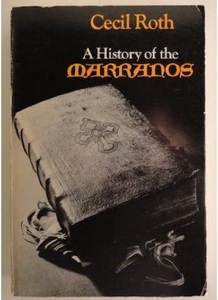NAMES ANALYSIS REPORT
You searched for:"Lara",
Here's what we found
There are many indicators that the name Lara may be of Jewish origin, emanating from the Jewish communities of Spain and Portugal.
When the Romans conquered the Jewish nation in 70 CE, much of the Jewish population was sent into exile throughout the Roman Empire. Many were sent to the Iberian Peninsula. The approximately 750,000 Jews living in Spain in the year 1492 were banished from the country by royal decree of Ferdinand and Isabella. The Jews of Portugal, were banished several years later. Reprieve from the banishment decrees was promised to those Jews who converted to Catholicism. Though some converted by choice, most of these New-Christian converts were called CONVERSOS or MARRANOS (a derogatory term for converts meaning pigs in Spanish), ANUSIM (meaning "coerced ones" in Hebrew) and CRYPTO-JEWS, as they secretly continued to practice the tenets of the Jewish faith.
Our research has found that the family name Lara is cited with respect to Jews & Crypto-Jews in at least 11 bibliographical, documentary, or electronic references:
A History of the Marranos, by Cecil Roth.
The expulsion of the Jews from Spain in 1492 by the infamous decree of King Ferdinand and Queen Isabella was the culmination of a series of anti-Jewish persecutions throughout the 14th and 15th centuries in which thousands of Jews were massacred. Thousands of others converted in order to escape death. After the expulsion many more joined the ranks of these "new Christians" as an alternative to exile. A large number of converts, while outwardly professing Christianity, secretly continued to practice Judaism. These Marranos, as they were popularly known, were then mercilessly persecuted by the dreaded Inquisition which through tortures of forced confessions and auto-da-fes sent thousands to the stake. Many others managed to escape to countries outside the reach of the Inquisition where they created a widespread Marrano diaspora. Thousands of Marranos have survived even into our times. This seminal work by the eminent historian traces the tribulation of these secret Judaizers as well as the fate of those who succeeded in escaping to other lands where many of them rose to prominence in various fields of endeavor.
Jews in Colonial Brazil, by Arnold Wiznitzer
Professor Wiznitzer gathered detailed information about individual Jewish settlers in colonial Brazil and about cases where they were brought before the Inquisition at Lisbon, and his study throws new light on some phases of Brazilian colonial history. Many Jews fled to Brazil and others were deported to the colony as convicted heretics after the King of Portugal attemtped to compel all of his Jewish subjects to accept Christianity in 1497.They were active in the establishment of the sugar industry and in trade, and they maintained close relations with another large group of exiles who had taken refuge in Amsterdam.Most of the "new Christians" continued to practice the old religion secretly.
Precious Stones of the Jews in Curaçao; Curaçaon Jewry 1656-1957, by Isaac Samuel Emmanuel (1957)
Names taken from 225 tombstones of 2536 persons, 1668 - 1859, men, women and some Rabbis. Includes cemetery history and plan, biographies including family histories, chronological list of names, alphabetical list of family names + number of members + eldest tombstone year, large bibliography, general alphabetical index, 15 genealogies.
From the publication, "Los Sefardíes" (The Sephardim),by Jose M. Estrugo. Published by Editorial Lex La Habana, 1958.(Surnames common among the Sephardim)
When the Romans conquered the Jewish nation in 70 CE, much of the Jewish population was sent into exile throughout the Roman Empire. Many were sent to the Iberian peninsula. The area became known by the Hebrew word "Sepharad". The JEWS in SPAIN and PORTUGAL became known as "Sephardim" or and those things associated with the SEPHARDIM including names, customs, genealogy and religious rituals, became known as SEPHARDIC.
The Sephardim of England, by Albert M. Hyamson
A history of the Spanish & Portugese Jewish Community, 1492-1951.
The Jews of Jamaica, by Richard D. Barnett and Philip Wright.Oron Yoffe, Ben-Zvi Institute, Jerusalem, 1997.
The product of many years of painstaking research by two late scholars, Richard D. Barnett and Philip Wright, this volume presents the texts or summaries of 1456 tombstone inscriptions of Jews who lived in Jamaica between 1663, when the British ousted the Spanish, and 1880, when systematic registration of deaths was introduced. Jewish families who had fled the Inquisition in Spain and Portugal settled in Jamaica in increasing numbers during that time. Ashkenazic Jews also settled there in the eighteenth century. The Jews played a significant part in developing the island's natural resources and its international trade. Featuring detailed indexes by name, date and language, The Jews of Jamaica is a valuable tool for the study of immigration to the Americas, the surnames, given names and genealogy of Sephardi Jews. The texts of the inscriptions, many of them in three languages (Hebrew, English and Portuguese or Spanish), are of cultural interest and sometimes refer to dramatic events in the lives of the Jewish residents of Jamaica during a turbulent period.
Sangre Judia (Jewish Blood) by Pere Bonnin. Flor de Viento, Barcelona, 2006. A list of 3,500 names used by Jews, or assigned to Jews by the Holy Office (la Santo Oficio) of Spain. The list is a result of a census of Jewish communities of Spain by the Catholic Church and as found in Inquisition records.
Pere Bonnin, a philosopher, journalist and writer from Sa Pobla (Mallorca), a descendant of converted Jews, settles with this work a debt "owed to his ancestors", in his own words. The book, written in a personal and accessible style and based on numerous sources, includes a review of basic Jewish concepts, Jewish history in Spain, and Christian Anti-Semitism. There is also a section that focuses on the reconciliation between the Church and Monarchy and the Jews, which took place in the 20th Century. In this study, Bonnin deals in depth with the issue of surnames of Jewish origin. In the prologue, the author explains the rules he followed in the phonetic transcription of surnames of Hebrew origin that are mentioned in the book. The researcher cites the Jewish origin, sometimes recognized and other times controversial, of historically prominent figures (like Cristobal Colon, Hernan Cortes, Miguel de Cervantes Saavedra and many others) and links between surnames of Jewish origin with some concepts in Judaism.. The book also includes an appendix with more than three thousands surnames "suspected" of being Jewish, because they appear in censuses of the Jewish communities and on the Inquisitorial lists of suspected practitioners of Judaism, as well as in other sources. In the chapter "Una historia de desencuentro", the author elaborates on surnames of Jewish origin of the royalty, nobility, artistocracy, clergy, and also of writers, educators and university teachers during the Inquisition. Special attention is given to the "Chuetas" of Mallorca, the birthplace of the author.
Raizes Judaicas No Brasil,(Jewish Roots in Brazil) by Flavio Mendes de Carvalho.
This book contains names of New Christians or Brazilians living in Brazil condemned by the Inquisition in the 17th and 18th centuries, as taken from the archives of Torre do Tombo in Lisbon. Many times details including date of birth, occupation, name of parents, age, and location of domicile are also included. The list also includes the names of the relatives of the victims. There are several cases in which many members of the same family were tortured and sentenced so some family lines may end here.
A Origem Judaica dos Brasileiros (The Origin of The Brazilian Jews), by Jose Geraldo Rodrigues de Alckmin Filho
This publication contains a list of 517 Sephardic families punished by the inquisition in Portugal and Brazil.
The Circumcision Register of Isaac and Abraham De Paiba (1715-1775) from the Archives of the Spanish and Portuguese Jews' Congregation of Bevis Marks (London. England).
This register is from the manuscript record preserved in the Archives of the Spanish and Portuguese Jews' Congregation of London named "Sahar Asamaim" transcribed, translated and edited by the late R.D. Barnett, with the assistance of Alan Rose, I.D. Duque and others; There is also a supplement with a record of circumcisions 1679-1699, marriages 1679-1689 and some female births 1679-1699, compiled by Miriam Rodrigues-Pereira. The register includes surnames of those circumsized as well as the names of their Godfathers & Godmothers.
Ruth Reyes, "Sephardic Family Names from Puerto Rico", The Casa Shalom Journal, Volume 10, Published by The Institute for Marrano-Anusim Studies, Gan Yavneh, Israel 2008
This list is compiled from a catalogue the author found on a visit to Puerto Rico in the Museum of San Juan.
Around the 12th century, surnames started to become common in Iberia. In Spain, where Arab-Jewish influence was significant, these new names retained their old original structure, so that many of the Jewish surnames were of Hebrew derivation. Others were directly related to geographical locations and were acquired due to the forced wanderings caused by exile and persecution. Other family names were a result of conversion, when the family accepted the name of their Christian sponsor. In many cases, the Portuguese Jews bear surnames of pure Iberian/Christian origin. Many names have been changed in the course of migration from country to country. In yet other cases "aliases", or totally new names, were adopted due to fear of persecution by the Inquisition.










